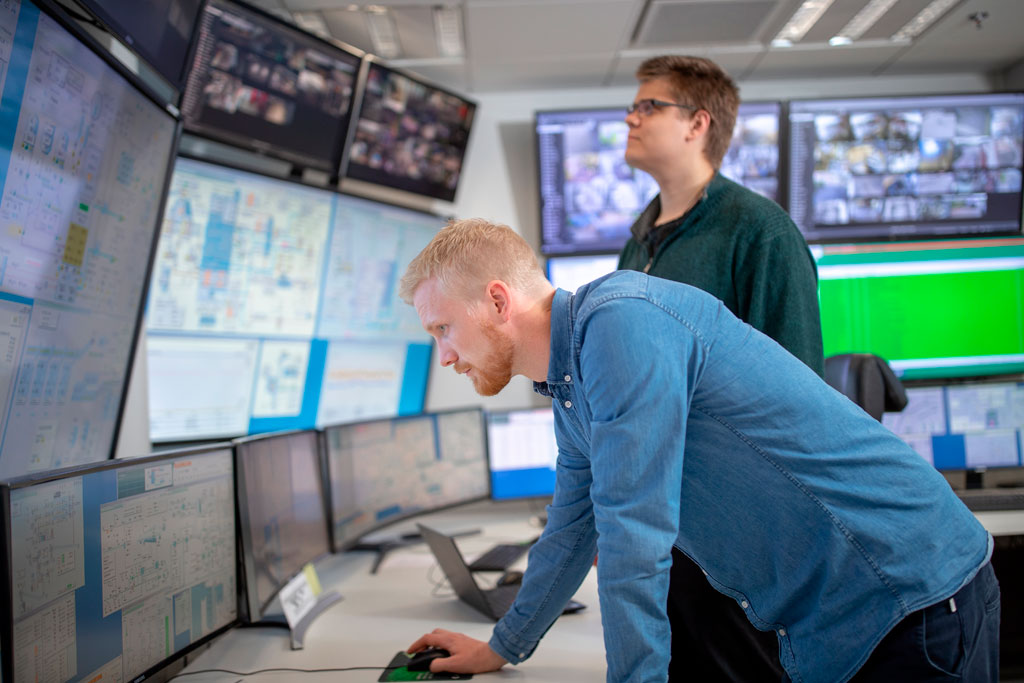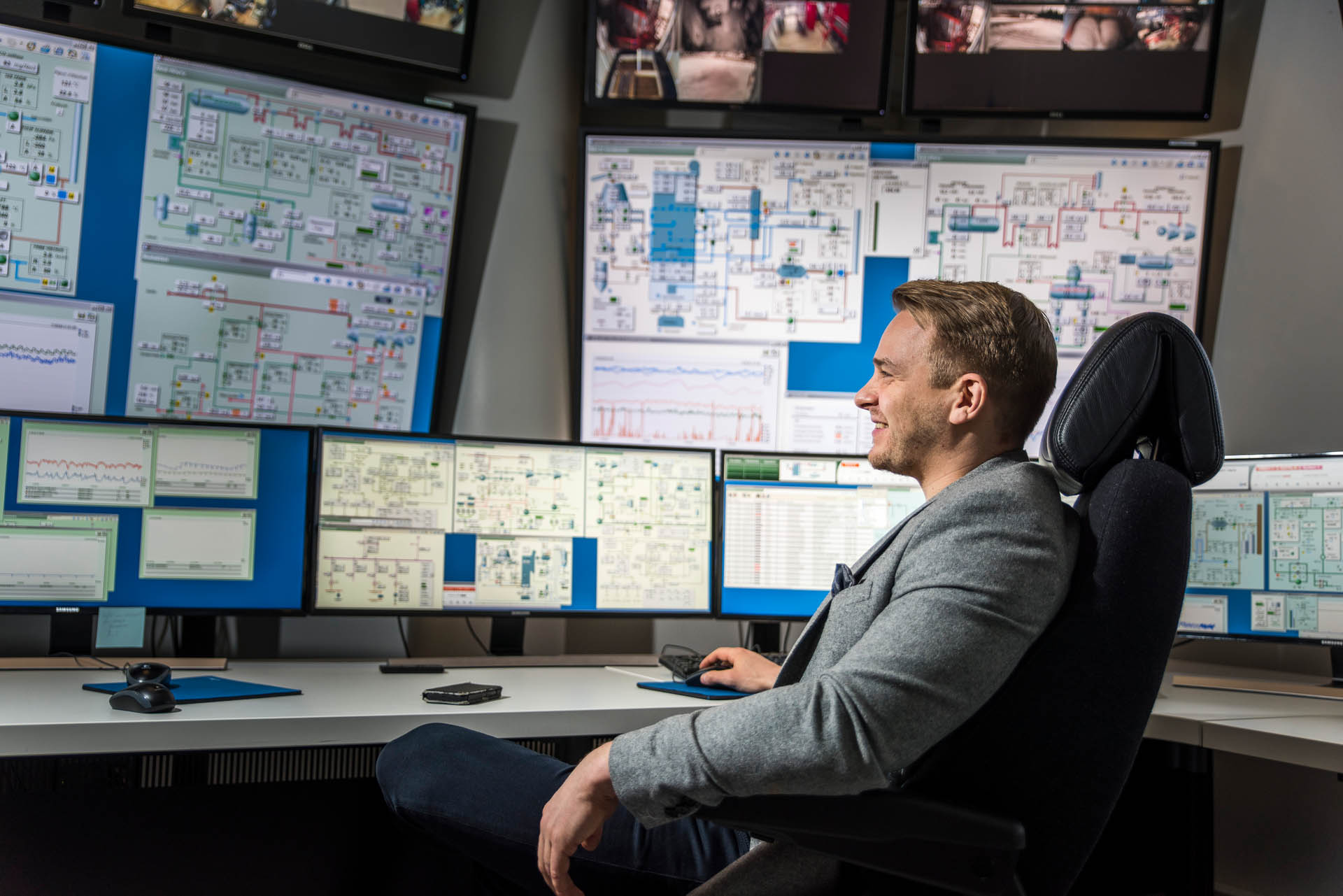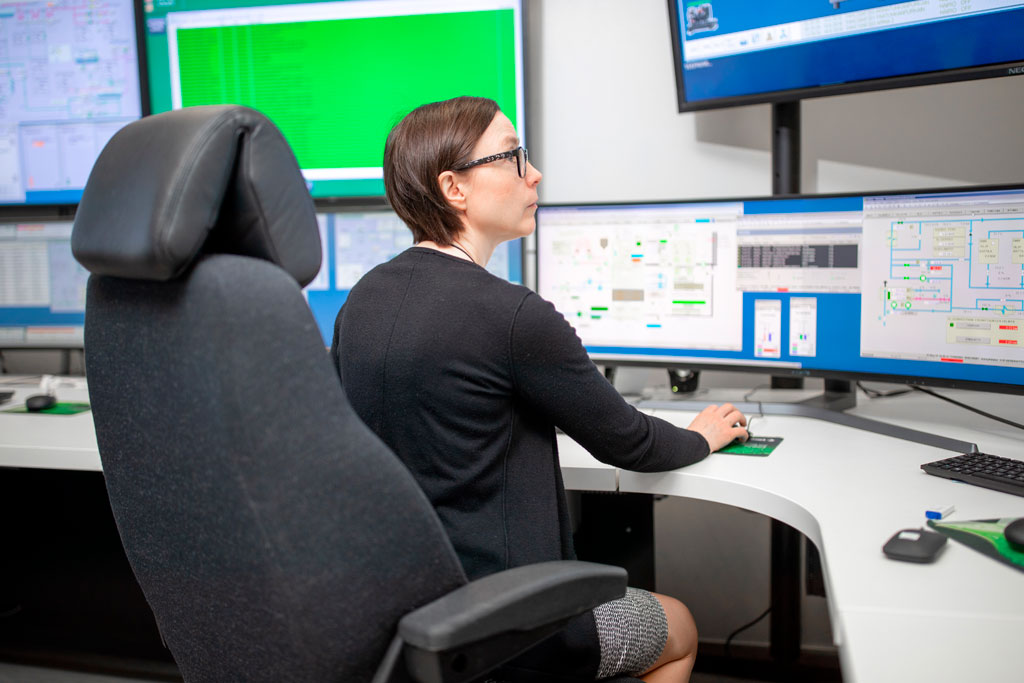Energy producers are under constant pressure to cut costs and ensure a reliable and uninterrupted energy supply. Nevel’s Remote operations service can help by centralising and automating operations to improve plant performance and decision making, reducing OPEX and emissions while also improving reliability and availability.
The Remote operations service was born out of Nevel’s desire to improve the competitiveness of its own heat plants and combined heat and power (CHP) plants. Previously, each plant had its own local supervisor and teams of operators and maintenance engineers working three shifts; operational decisions were taken according to the experience of the local shift managers, and maintenance personnel on night shifts often had a lower work load. Nevel decided to centralise the operations of all its plants and use machine learning and automation to ensure that data from each plant was harnessed to enable the best decision making across all plants. Significant cost savings, as well as increases in efficiency and availability, convinced Nevel that this was a model that could benefit other power plant operators too.

Automation and remote access technology – combined with digital platform and data analytics – enables 24/7 monitoring and operation from a single control room staffed by highly skilled operators.
Cutting costs through digitalisation
Implementing digital technology can lead to new business opportunities and better profitability by improving processes and performance. Instead of each power plant being run by local teams working around the clock, automation and remote access technology – combined with digital platform and data analytics – enables 24/7 monitoring and operation from a single control room staffed by highly skilled operators. These experts are supported by advanced machine-learning technology that analyses data and provides recommendations on how to best maximise efficiency based on set targets.
When automation is controlled by machine-learning models and machine intelligence, human error and performance variations between shifts are eliminated. And since data is constantly being collected and analysed, operators have a much better understanding of production, leading to better decisions and improved efficiency. Potential problems can also be spotted in advance and preventive maintenance undertaken to avoid expensive downtime. The result is less ad-hoc maintenance and firefighting, and more time for important things like planning and development.
“In our experience, centralising energy production through automation reduces costs significantly,” says Ville Koikkalainen, Manager, Remote operations services at Nevel. Nowhere else in the world do we have as many solid biomass fired power and heat plants as we do in Finland and Sweden. Add to this our new data environment and you can see how we are in a unique position to drive operational development together with our customers.”

“In our experience, centralising energy production through automation reduces costs significantly,” says Ville Koikkalainen, Manager, Remote operations services
Centralised control for better efficiency
All process data collected is sent to Nevel’s cloud-based monitoring platform. This enables production planning and streamlining as well as better reporting. Once refined, the data facilitates improved management and control.
“Nowadays, there is a flood of information. But it’s often in an unusable form and is difficult for operators to digest. This means managers end up only seeing bits and pieces of the process and the end results, but not the big picture. Our system fixes this problem by gathering and analysing the data, and then making the best decisions based on agreed KPIs,” says Teemu Klingberg, Director, Energy Solution and Service Sales at Nevel.
Improvements made at one plant can be quickly rolled out to other plants. Because data is collected from so many sources, connecting new plants to Nevel’s platform does not require extensive investment or modelling. “Our system knows how any given plant or district heating network behaves,” says Klingberg. This enables it to advise on the best time to raise or lower production, for example. As the system learns from each event and each plant, it can start to predict events. “Think of it like a car’s cruise control, but much better,” explains Klingberg. “Say you’re set to 80 km/h but you see a 100km/h sign coming up. You accelerate, but around the corner the limit goes back to 80 km/h and you have to slow down again. In a situation like this a local operator may have increased production, but our system sees the bigger picture and would know that there is no need to accelerate for such a short space of time and so it keeps production stable with no overspeed.”

All process data collected is sent to Nevel’s cloud-based monitoring platform. This enables production planning and streamlining as well as better reporting. Once refined, the data facilitates improved management and control.
